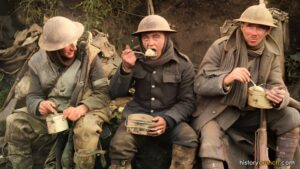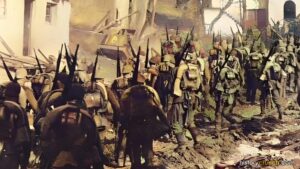Europeans fought in the Crusades for a mix of religious, economic, and social reasons. Many were motivated by the promise of spiritual rewards, such as forgiveness of sins and guaranteed entry into heaven. Others joined for adventure, wealth, land, or to gain status and escape difficult conditions at home.
WHAT WERE THE CRUSADES?
The Crusades are one of the most significant events in the history of Europe and the Middle East. They were a series of religious wars carried out by Christian crusaders from Europe during the timeframe of the Middle Ages. Beginning in 1095 CE, the crusades saw European knights and noblemen travel to the Middle East in an attempt to capture the Holy Land away from Muslim people that had controlled the region for the previous centuries. The term crusade means ‘cross’. Therefore, the Europeans that became crusaders viewed themselves as ‘taking up the cross’. In fact, many of the crusaders wore crosses on their clothing and armor as they made their pilgrimage to the Holy Land.
WHY DID EUROPEANS FIGHT IN THE CRUSADES?
The European crusaders participated in the crusades for several key reasons. First and foremost was the religious faith of the participants. They were devout Catholics and wanted to be faithful to the church. When Pope Urban II called on Europeans to free the Holy Land from Muslim control in 1095, thousands of European Christians took up the mission. At the time, it was not common for people to question the church or religious faith and as a result many joined the crusades in order to carry out their religious duty.
The second reason for European participation in the crusades was that they believed that by participating in the fight they could be forgiven for their previous sins. In fact, the Pope promised forgiveness for past sins and as a result many of the first crusaders believed that they would ascend to heaven soon after capturing Jerusalem.
Third, the crusades were a convenient distraction for many peasants from the harshness of daily life under feudalism. Under feudalism, peasants worked or farmed tirelessly and their taxes were used to pay for most activities in society. The mission of the crusades offered the average peasant an escape from this reality and allowed them the ability to fight shoulder-to-shoulder with others towards a common goal.
Fourth, the crusades gave those participating an opportunity to go on an adventure to a faraway land. In the time of the Middle Ages, most people were born, lived and died in the same relative area. The crusades offered people the ability to travel to a distant land and interact with other people. Many Europeans enjoyed the adventure of the crusades.
Fifth, many of the nobility and peasants from Europe participated in the crusades because they believed that they could obtain fortune for themselves in the wealthy Middle Eastern civilizations.
In conclusion, the crusades were a vitally important event to European and Middle Eastern History. They were centered on a clash between different religions and helped transform Europe and the Middle East during the years of the Middle Ages. As well, many historians consider the effects of the crusades as an important event in the emergence of the Renaissance in Europe a few centuries later.


